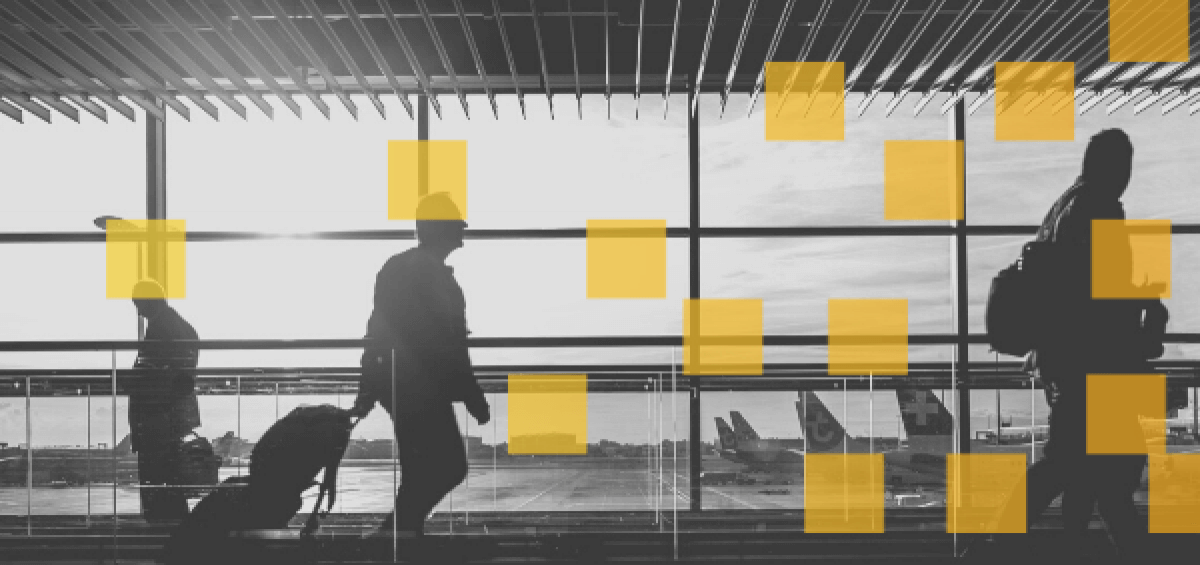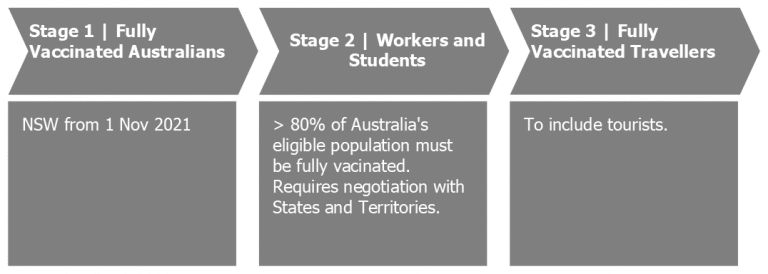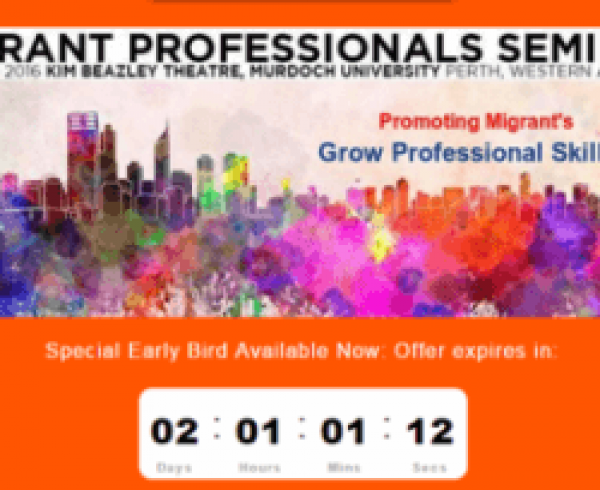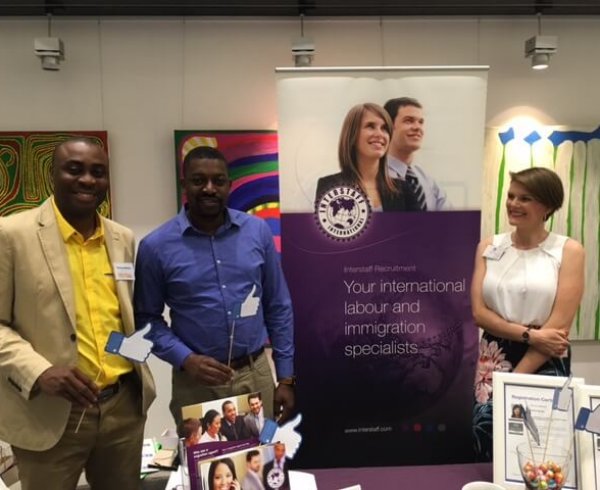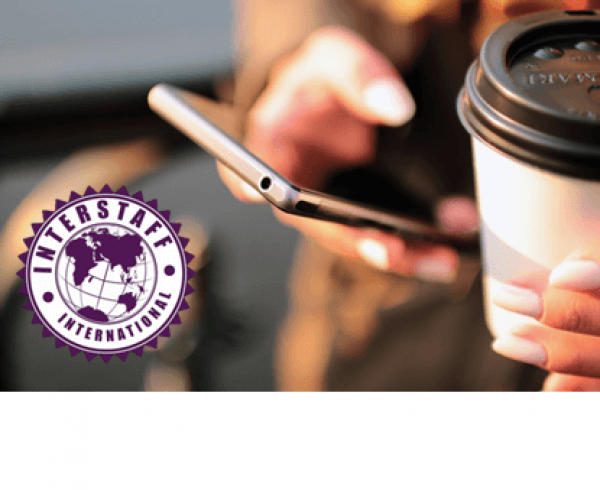Travel Exemptions Australia 2021 | Fully Vaccinated Eligible Travellers to Come to Australia from 15 December 2021 | Travel Exemptions Removed
Update on 14 December 2021: After almost two years of waiting to enter the country for many Skilled Visa holders and International Students, the emergence of Omicron had delayed plans to remove the need for Travel Exemptions for these groups to 15 December 2021 instead of 1 December 2021. Our below article from 22 November 2021 has been updated and includes what you should know about how restrictions will ease on 15 December 2021. You can read more about Omicron and its impact on Australian international travel here.
Prime Minister, Scott Morrison has announced that Travel Exemption requirements will be removed for fully vaccinated travellers to come to Australia from 15 December 2021 – including for some Skilled Visa and Student Visa holders.
The change will allow eligible travellers with a valid visa to come to Australia without having to request Travel Exemption permission from the Government.
Here’s what you should know.
- Which visa holders can come to Australia without a Travel Exemption?
- Will I still need to undertake quarantine?
- How does the Government determine a person is ‘Fully Vaccinated’? Are there exceptions?
- What this means for the re-opening of international travel to Australia.
Which Visa Holders Can Come to Australia Without a Travel Exemption?
From 15 December 2021, the below fully vaccinated visa holders will not need a Travel Exemption for travel to Australia:
Skilled and Other Temporary Holders
- Subclass 400 Temporary Work (Short Stay Specialist) Visa
- Subclass 482 – Temporary Skill Shortage Visa
- Subclass 457 – Temporary Work (Skilled) Visa
- Subclass 494 – Skilled Employer Sponsored Regional (Provisional) Visa
- Subclass 491 – Skilled Work Regional (Provisional) Visa
- Subclass 489 – Skilled – Regional (Provisional) Visa
- Subclass 408 – Temporary Activity Visa
- Subclass 407 – Training Visa
- Subclass 988 – Maritime Crew Visa
- Subclass 417 – Working Holiday Visa
- Subclass 462 – Work and Holiday Visa
- Subclass 403 – Temporary Work (International Relations) visa (other streams, including Australian Agriculture Visa stream)
Student and Graduate Visa Holders
- Subclass 500 – Student Visa
- Subclass 485 – Temporary Graduate Visa
- Subclass 476 – Skilled – Recognised Graduate Visa
- Subclass 580 – Student Guardian visa (closed to new applicants)
- Subclass 590 – Student Guardian Visa
Family Visa Holders
- Subclass 300 – Prospective Marriage Visa
- Subclass 870 – Sponsored Parent (Temporary) Visa
- Subclass 461 – New Zealand Citizen Family Relationship Visa
Humanitarian Visa Holders
- Subclass 200 – Refugee Visa
- Subclass 201 – In-country Special Humanitarian Visa
- Subclass 202 – Global Special Humanitarian Visa
- Subclass 203 – Emergency Rescue Visa
- Subclass 204 – Woman at Risk Visa
- Subclass 449 – Humanitarian Stay (Temporary) Visa
- Subclass 785 – Temporary Protection Visa
- Subclass 790 – Safe Haven Enterprise Visa
Additional visa subclasses may be added in the future. The above is in addition to current travel restrictions and exemptions to enter Australia.
You also need to be aware that States and Territories have the discretion to set dates for opening the international border in their jurisdiction and you may not be able to enter specific States and Territories.
Will I Need to Undertake Quarantine?
Quarantine requirements are determined by State/Territory regulations therefore you should check these requirements at the time of travel.
You will need to comply with the quarantine rules in the State/Territory of your arrival as well as any other States/Territories you plan to travel to. Restrictions may also apply that prevent travellers from entering from particular States/Territories without an exemption.
Currently, fully vaccinated travellers returning to Australia can only enter and travel between NSW, Victoria and the ACT without quarantine. Travellers to or between other States/Territories may need to quarantine.
How does the Government determine a person is ‘fully vaccinated’? Are there any exceptions?
The Australian Government considers the below travellers who have had the below dosages of Therapeutic Goods Administration (TGA) approved/recognised vaccines to be ‘fully vaccinated’:
- Two doses at least 14 days apart of:
- AstraZeneca Vaxzevria
- AstraZeneca Covishield
- Pfizer/Biontech Comirnaty
- Moderna Spikevax
- Sinovac Coronavac
- Bharat Biotech Covaxin
- Sinopharm BBIBP-CorV (for 18-60 year olds)
- Or one dose of:
- Johnson & Johnson/ Janssen-Cilag COVID Vaccine.
At least 7 days must have passed since the final dose of vaccine. Mixed doses may count towards being fully vaccinated.
Exceptions apply for the below:
- Travellers with proof they cannot be vaccinated for medical reasons
- Children under 12
Unvaccinated or partially vaccinated children aged 12-17 years may be able to travel with a fully vaccinated parent or guardian. Quarantine and caps on international arrivals may apply.
Travellers will need to show a vaccination certificate as proof of vaccination to enter Australia and other requirements for Australia Travel Declarations and pre-flight COVID testing will continue.
Re-opening International Travel | Travel Exemptions Australia 2021
It has been nearly two years since Student Visa and Skilled Temporary Visa holders have been able to come to Australia without a Travel Exemption.
Mr Morrison estimated that the change from 15 December will allow around 233,000 visa holders to be eligible to come to Australia – an important step towards Australia’s National Plan to re-open international travel and boost economic recovery.
Businesses facing skill shortages have welcomed the changes, which will enable them to more easily engage skilled global talent.
It comes after Australia opened travel to fully vaccinated tourists from Singapore yesterday on 21 November, which marked the start of a quarantine-free Australia-Singapore Travel Bubble.
Vaccinated citizens from Japan and South Korea will also be eligible to travel to Australia from 15 December 2021 in similar travel bubble arrangements.
Mr Morrison has not yet announced when tourists from all countries will be able to travel to Australia. Last month, Health Minister Greg Hunt indicated tourists would be eligible to come to Australia in the final stage of re-opening the international border.
Interstaff | Travel Exemptions Australia 2021
Developments to ease travel restrictions are certainly coming through at a more rapid pace as vaccination rates increase. Flight availability and quarantine may however impact travel plans.
Given that some Skilled Visa requirements, such as Skills Assessments, English tests and Health and Character requirements can take some time to prepare, you may wish to get advice on your visa options and sponsorship needs.
We encourage you to call Interstaff’s Migration Agents on 08 9221 3388 (Perth) or 02 7200 2567 (Sydney) or 03 8319 0902 (Melbourne) or +61 8 9221 3388 (International) or get in touch here.
You may also wish to connect with us on Facebook and LinkedIn to keep up-to-date on Australian international travel.
Source:
Interstaff’s Registered Migration Agents
Press Conference – Scott Morrison
The Department of Home Affairs
The Canberra Times
The Canberra Times


